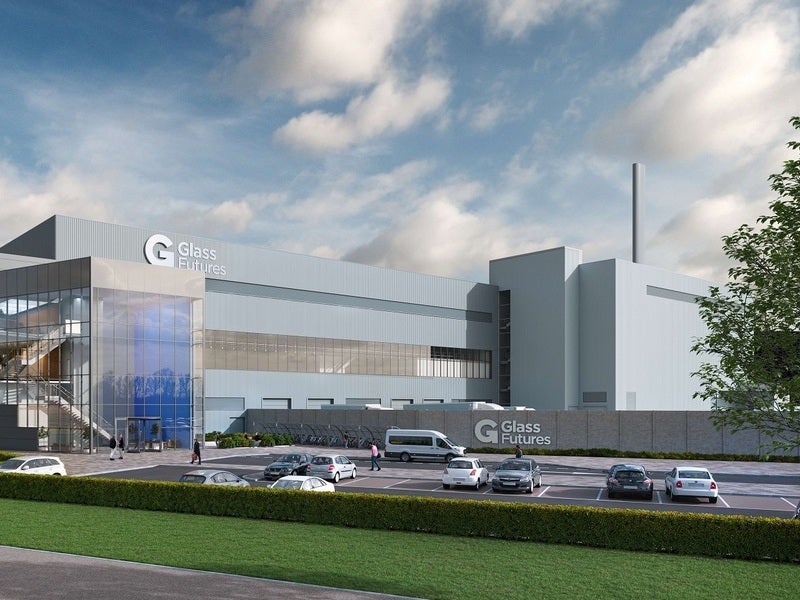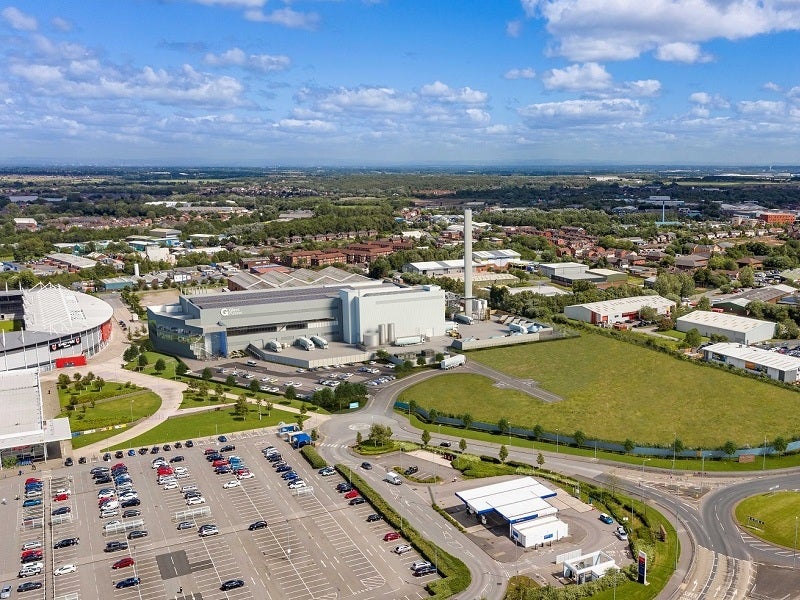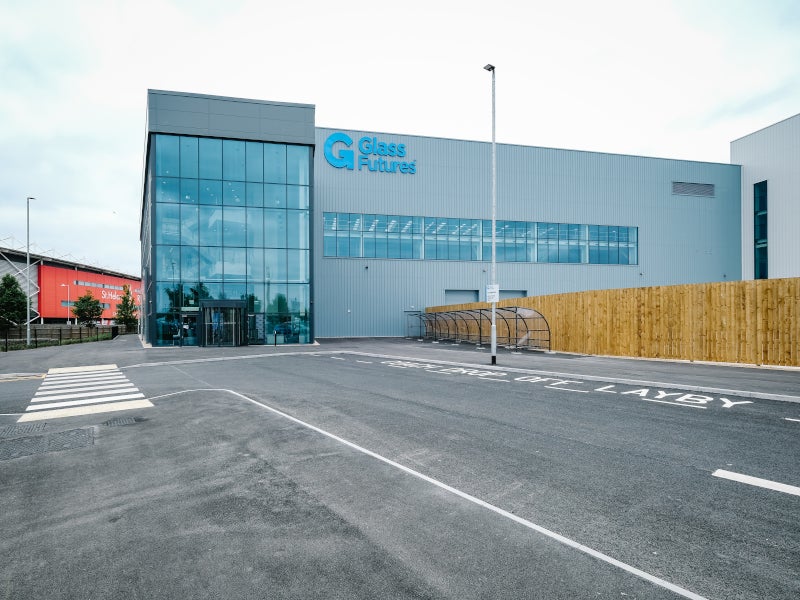The £54m ($76.46m) glass furnace facility serves as the world’s first Global Centre for Excellence for Glass. It is used to undertake research and development (R&D) projects backed by both the industry and government.
Built as a scaled-down manufacturing facility, the plant provides a platform for glass industry companies to work on process improvements to increase production efficiency and drive sustainability.
Glass Futures secured planning approval from the St Helens Borough Council for the new hot glass manufacturing facility in May 2021. Construction work at the facility began in July 2021 and it was opened in June 2023.
St Helens Borough Council was given the facility for a 15-year head lease and sublet to Glass Futures for delivering R&D government projects.
Currently, the industrial scale 30 tonnes (t) per day pilot furnace with abatement and heat recovery is being installed at the facility, with the first firing planned in 2024.
Location of Glass Futures’ new R&D and production facility
The Global Centre of Excellence is located at Saints Retail Park, adjacent to the Totally Wicked Stadium in St Helens Borough, Lancashire, UK.
The Saints Retail Park is a 14-acre site with direct access to the St Helens Linkway and M62 motorway.
The site previously housed a glassworks facility for UK-based company United Glass.
Facilities at Glass Futures’ Global Centre of Excellence
Glass Futures’ Global Centre of Excellence built on a 165,000ft2 area includes a container glass production line and provision for the installation of a float glass production line in future. It also has office, training, and laboratory spaces.
The facility includes a unique experimental furnace with state-of-the-art technology for producing carbon-neutral glass. It offers access to large-scale combustion equipment, including a highly instrumented 350kW combustion rig.
A 30t per day pilot furnace will complement the current R&D efforts by closing the distance between technology readiness level and commercial feasibility. It will be the world’s first openly accessible furnace designed to test commercially viable technology.
Equipped with complete plant utilities and services, the furnace will enable the glass output to undergo processing through an individual section forming machine and cold-end container process coating, inspections, and packaging line.
It will be used to manufacture a range of products, including bottles, jars, doors, windows, and fibreglass.
Approximately £15m of the total investment is used to install specialised equipment for improving energy efficiency and resource usage at the facility.
Research focus at the Global Centre of Excellence
The research work at the Global Centre of Excellence will focus on identifying and exploring alternative raw materials, advanced process control systems, new glass materials, and other technologies, including waste heat recovery, low-carbon fuel sources, and carbon capture and storage.
It aims to cut carbon and other emissions from glass production by more than 80%.
The facility will eventually transition to the industrial-scale development of new products and processes that will reduce production time as well as risk for future glassmakers.
Financing for the new facility
The project is backed by funding from the UK Government, Glass Futures, Liverpool City Region Combined Authority and St Helens Borough Council. The Liverpool City Region Combined Authority offered £9m in funding for the project in July 2020 while St Helens Borough Council is investing £0.9m.
UK Research and Innovation, a national funding agency of the UK Government, supported the project with funding of £15m under the Transforming Foundation Industry (TFI) programme.
TFI is an initiative aimed at supporting energy-intensive foundation businesses such as glass, concrete, and steel, in sharing expertise as well as exploring new technologies and innovations that will reduce carbon emissions.
To obtain forward funding, Network Space Development presold the building to global investor Standard Life Investments Property Income Trust, in 2022.
The remaining investment was sourced from the glass industry.
Contractors involved in the Glass Futures project
Bowmer + Kirkland, a construction and development company based in the UK, was selected by NSD in December 2021 to build the glass manufacturing facility.
UK-based commercial real estate development investment and management group Network Space, which owns the St Helens site, delivered the project. The company prepared and submitted the planning application for the project on behalf of Glass Futures.
AEW Architects was awarded a contract to design the facility. PSR was involved in designing flexible and innovative forehearths for the facility while EME installed a batch plant.
Other contractors involved in the project are Hoare Lea, Tetra Tech and IMT Consultancy.
Project background and benefits
In 2018, the Glass Futures project consortium, comprising British Glass, Pilkington Glass, and the Universities of Liverpool and Leeds, selected St Helens as one of two locations in the UK to host a new research facility equipped with a large experimental glass furnace.
The selected location for the second centre of excellence was the new research and innovation campus at the University of Leeds in West Yorkshire.
The consortium also includes Guardian Glass, Glass Technology Institute, Swarovski, Siemens, and certain other glass manufacturing companies and universities.
In February 2019, representatives from both the industry and academia discussed the final design and operating model of the Glass Futures project in St Helens, before entering talks with the government.
The project contributes to efficient, low-carbon glass production across the industry. It also aims to put the UK at the forefront of glass innovation and eco-friendly production.
AMETEK Land became a member of Glass Futures, the Global Centre of Excellence in April 2022 to innovate on making lower carbon glass products and processes. Ryze Hydrogen collaborated with Glass Futures to help decarbonise the glass industry by exploring the role of hydrogen in it.
During the construction phase, a total of 441 workers and subcontractors were appointed for the project, including 30 apprentices and some labour from St Helens, Wigan, and Warrington communities.





